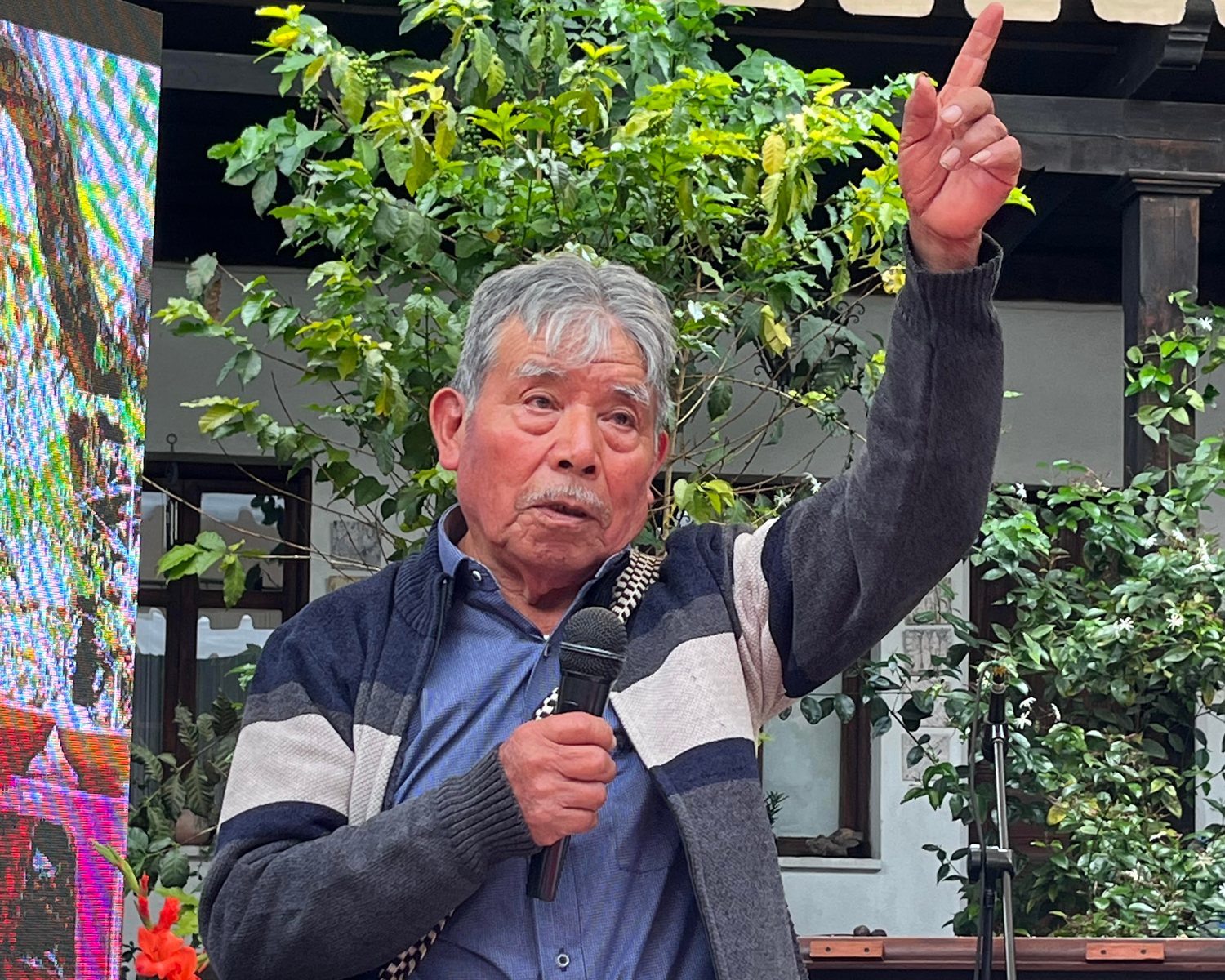
6.21.24 – Honoring Don Felipe Tomás
This past weekend Don Felipe Tomás was honored for his pioneering work in the farmer-to-farmer methodology with FUNDAMARCOS (Baja Vera Paz Sustainable Agriculture). His family, colleagues, and students came together to recognize his lifelong commitment to overcoming injustice & poverty and protecting the environment. At the ceremony, it was announced that one of the rooms at the La Casa Para La Cultura Maya (Maya Cultural Center) would be named after Don Felipe, and his tireless work in agro-ecology. Thank you, Don Felipe Tomás for everything you’ve taught us. We strive to follow your lead!
El pasado fin de semana se llevó acabo una ceremonia para honrar a Don Felipe Tomás (FUNDAMARCOS/ Baja Vera Paz Sustainable Agriculture), considerado el abuelo de la metodología de campesino a campesino. Su familia, sus compañeros y compañeras, y estudiantes celebraron su destacada trayectoria luchando encontra de la injusticia, la pobreza y protegiendo el territorio/medio ambiente. En la ceremonia se aunció que uno de los salones en la Casa de la Cultura Maya se nombrará en su honor. Gracias Don Felipe Tomás, por todo lo que nos ha enseñado. ¡Esperamos seguir su gran legado!
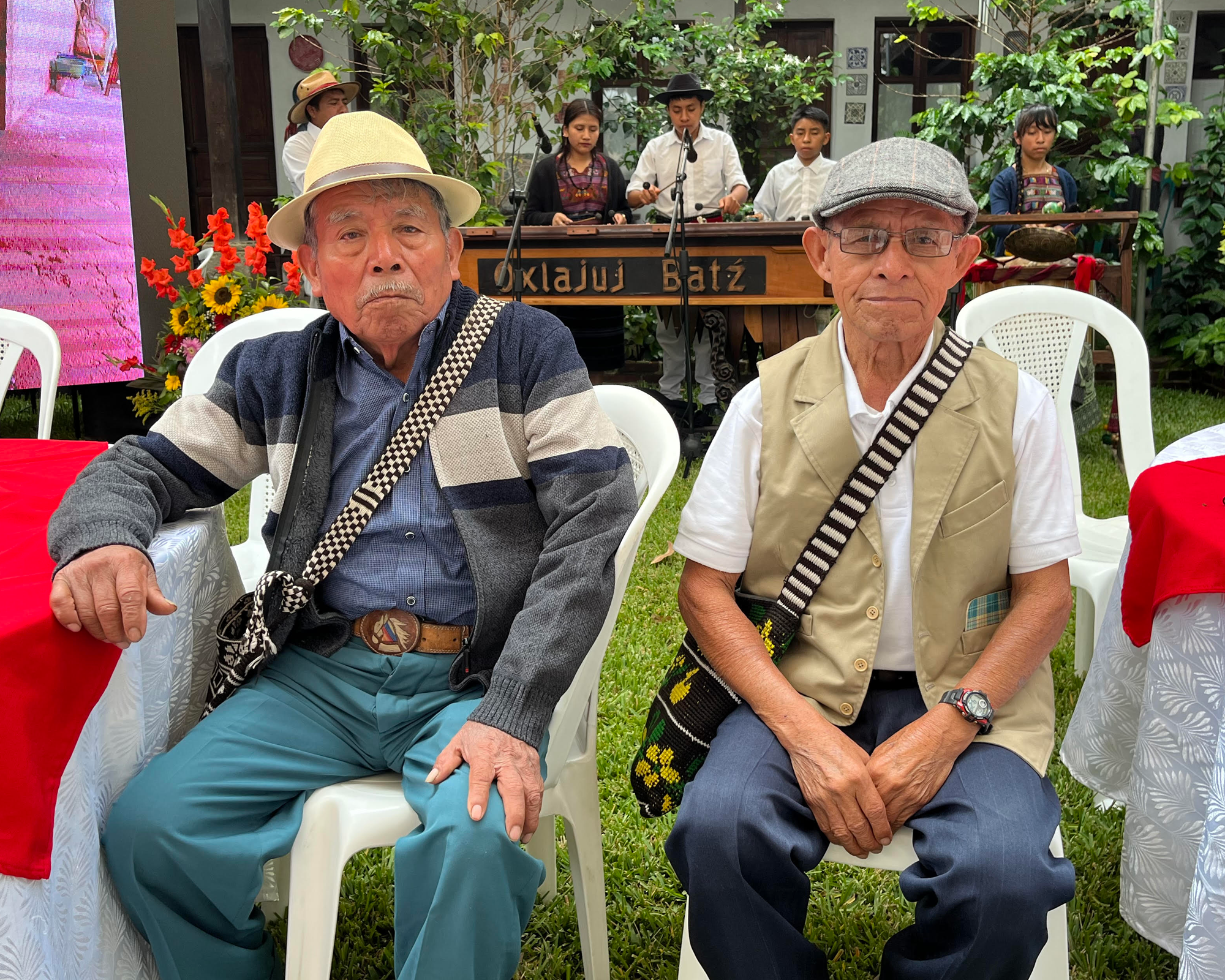
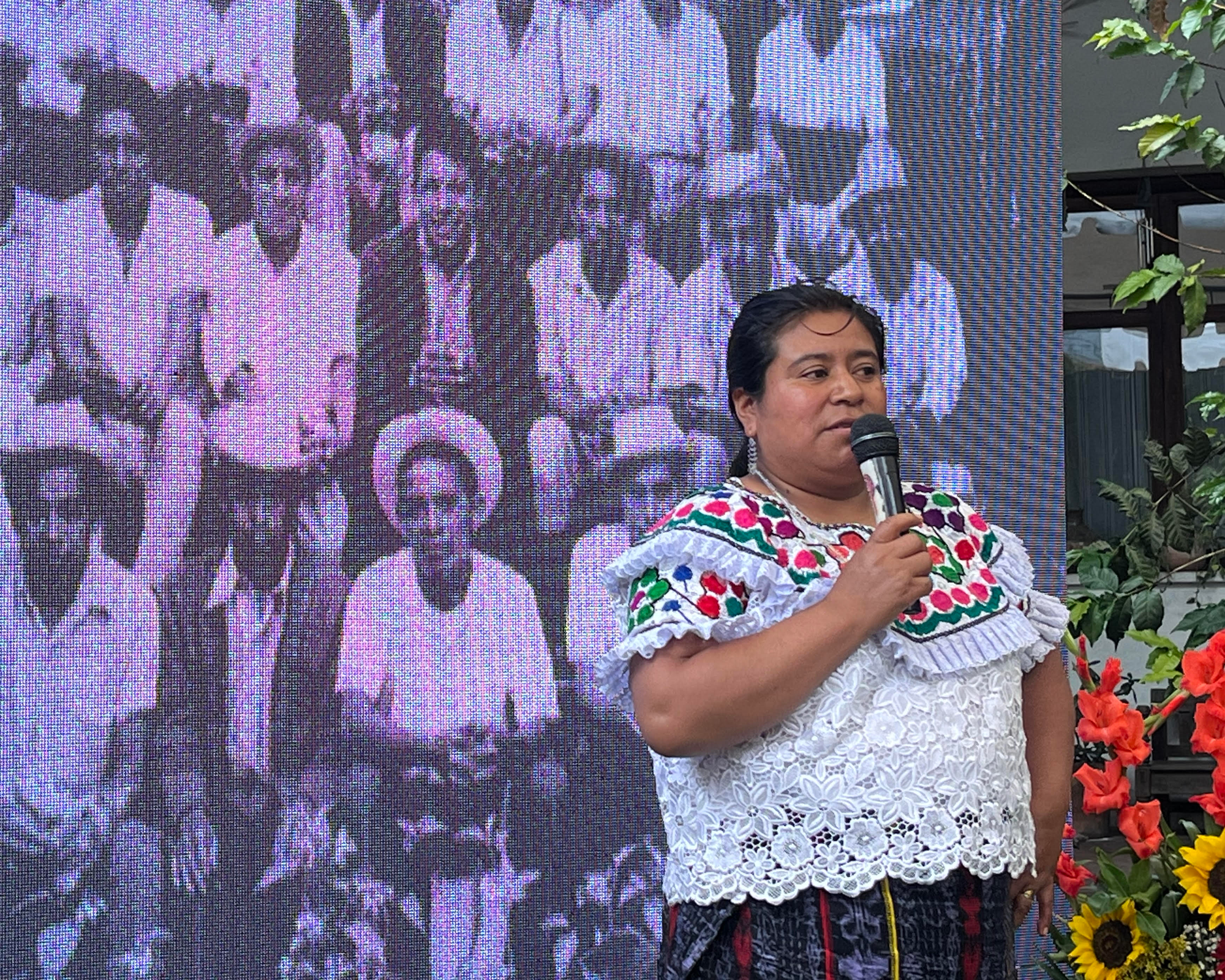
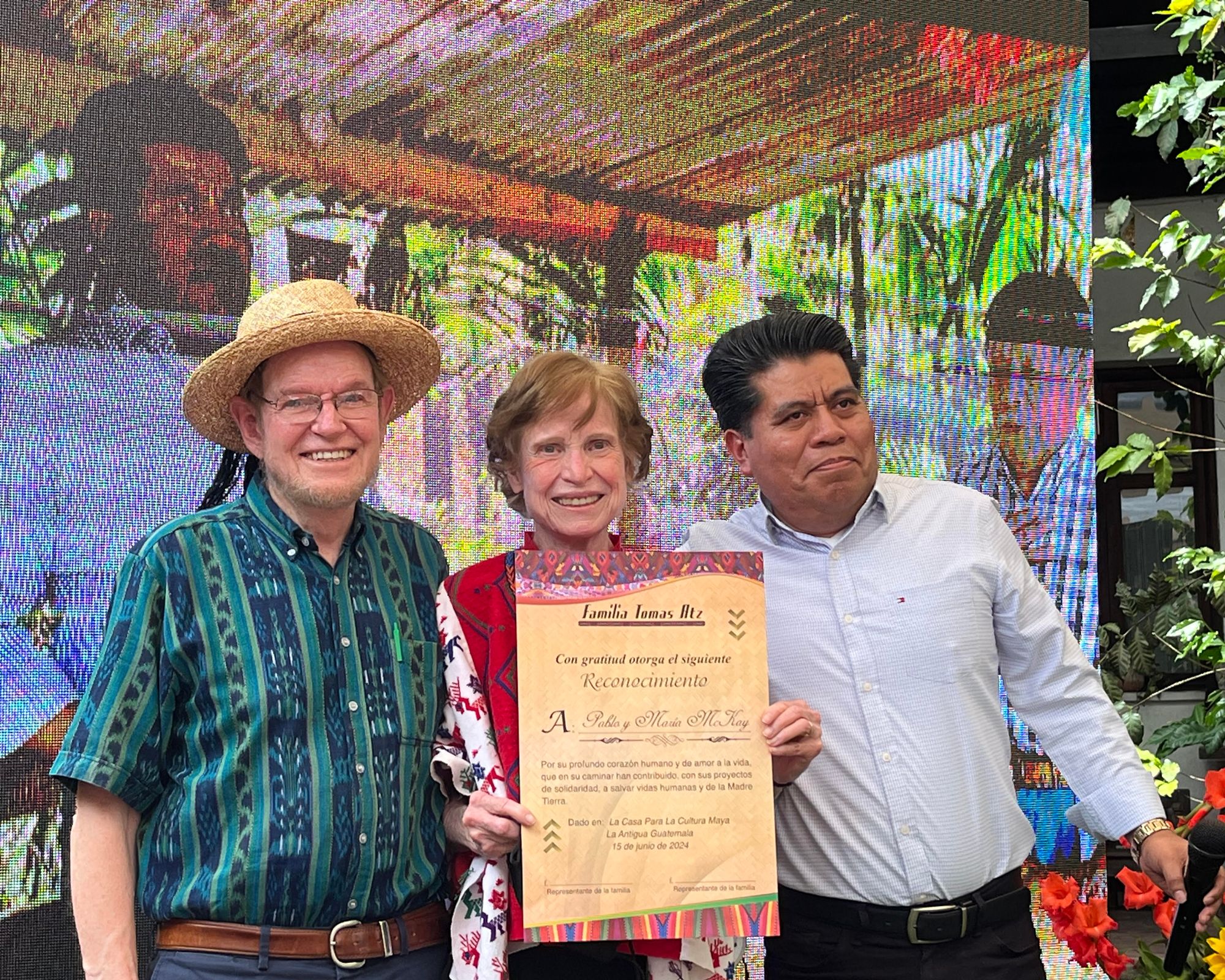
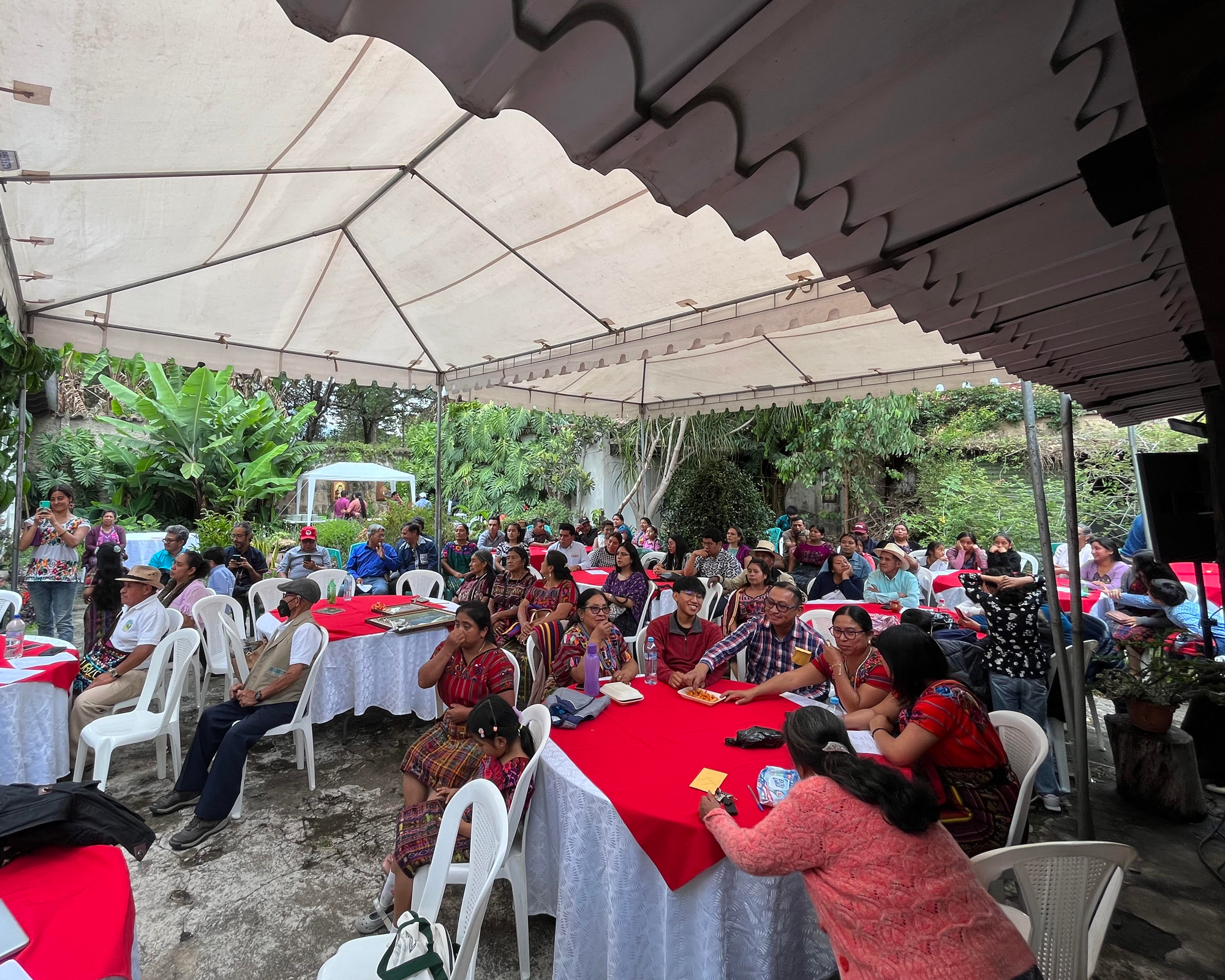
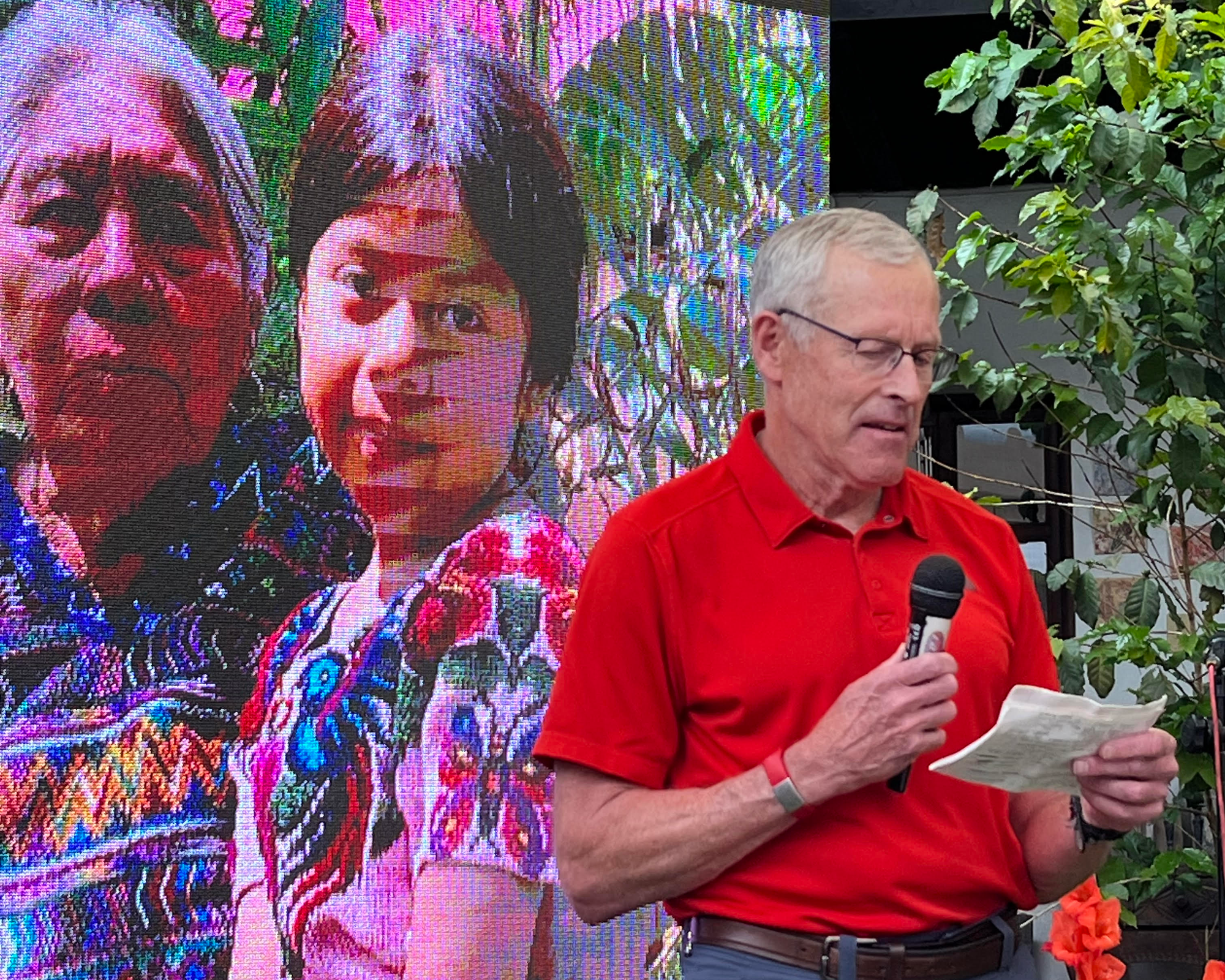
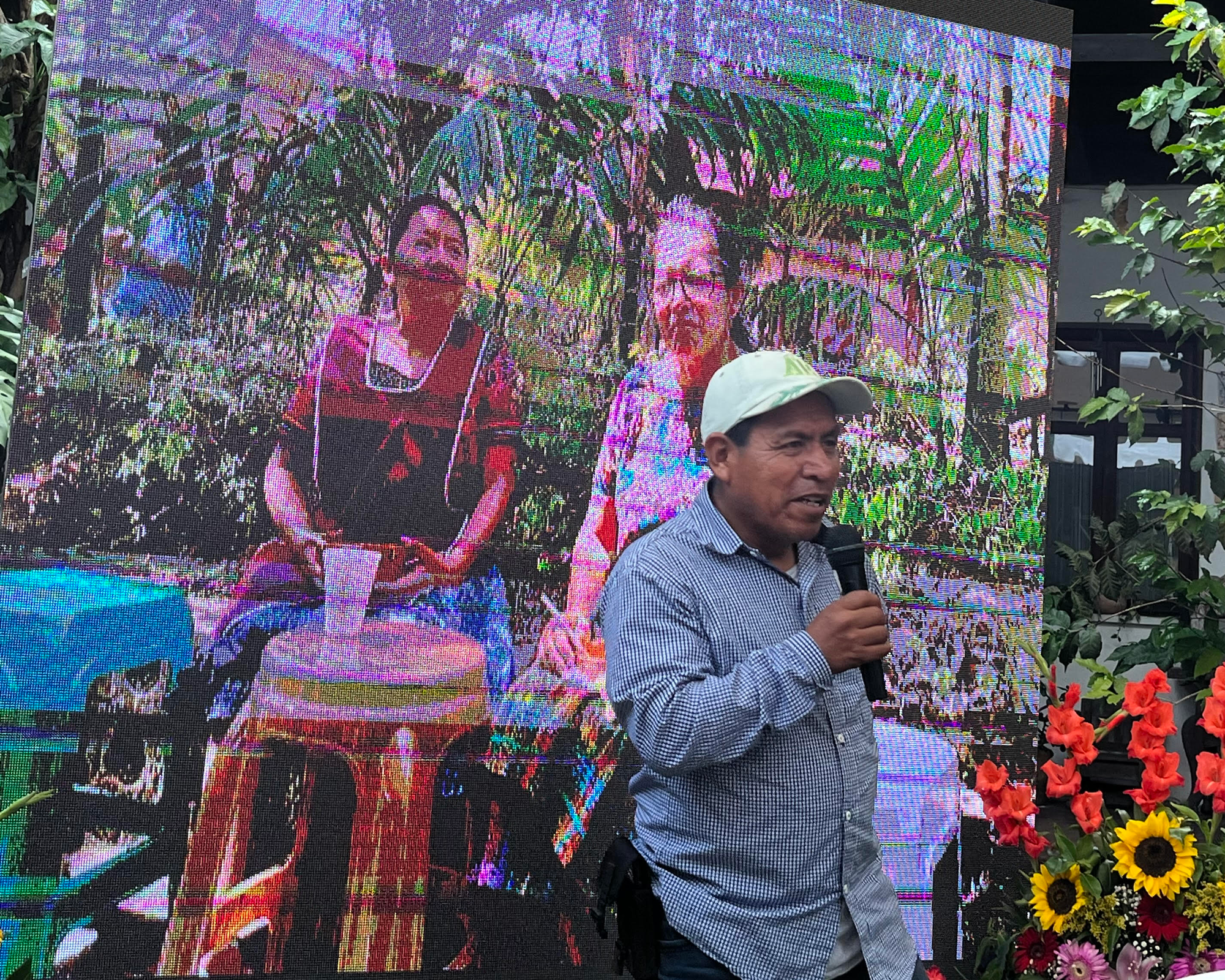
LA CASA PARA LA CULTURA MAYA
The Maya Cultural Center is a cultural center and educational resource:
- To preserve, esteem, and promote all expressions of Maya culture including Maya dress, music, dance, art, weaving, agriculture, cuisine, and community, spiritual, and family values.
- To reach out to the non-indigenous (ladino) population of Guatemala with special programs and events.
- To serve as a place where Mayas will have the opportunity to present their own interpretation of Maya culture to Guatemala’s international and national tourists.
- To provide a place for educational programs designed to improve racial understanding and help both the indigenous and ladino populations of Guatemala develop pride in the contribution of Mayas to Guatemala’s national identity.

